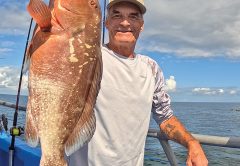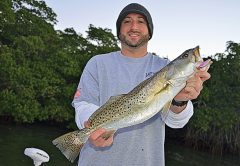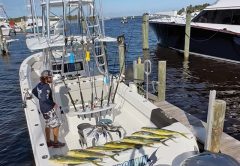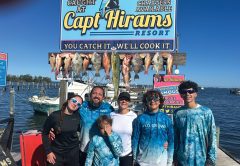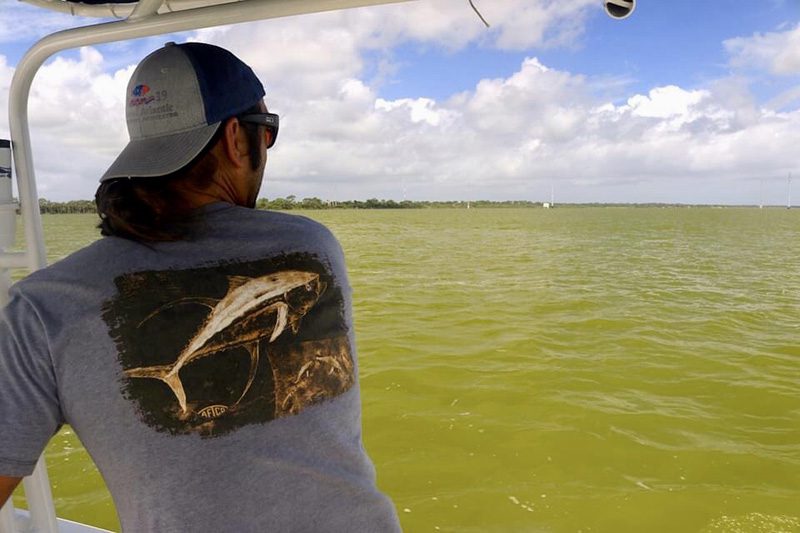
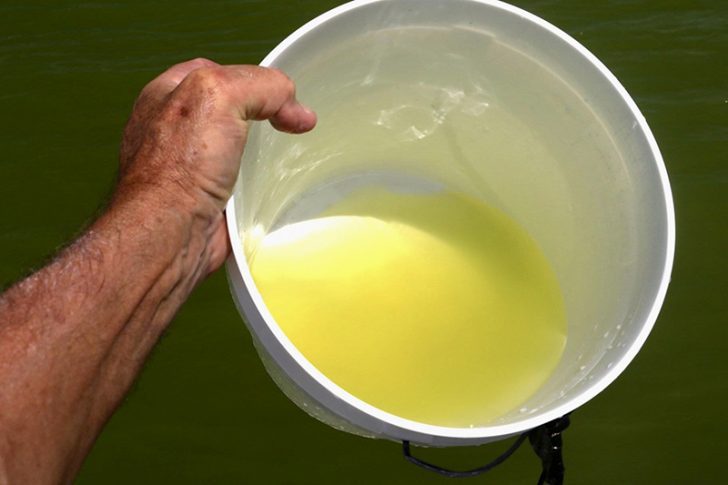
By Mike Conner – Executive Director
Indian Riverkeeper (IRK) has extended its monitoring and water sample testing into the northern Indian River Lagoon since mid-September to document the worsening algal bloom conditions from roughly Melbourne north.
IRK Executive Director Mike Conner joined Capt. Alex Gorichky in late-September to get a glimpse of the chronic algal bloom in the Port Canaveral region, and at that time the bloom (not yet positively identified) was so extensive that Gorichky and Conner covered 20 miles of the Indian and Banana rivers, Syke’s Creek and Barge Canal on the half-day trip without finding an end to the bright-green bloom. Water sampling was done at three locations, with visibility less than a foot in places, but dissolved oxygen levels were in the safe range for sea life, possibly aided by windy weather.
Asked about the probably causes for this recurring bloom, Gorichky was quick to respond. “I believe that this bloom, though so bright green in color, is a combination of algae species, with what we call ‘brown tide’ in the mix,” said Gorichky. “The mid-summer rain increase followed a period of decent water conditions, and with all runoff from land, it blew up. “It’s all infrastructure failure—sewer, septic—but also the overuse of yard fertilizers, which, though banned for use, is still on the local store shelves, which is true throughout Florida.”
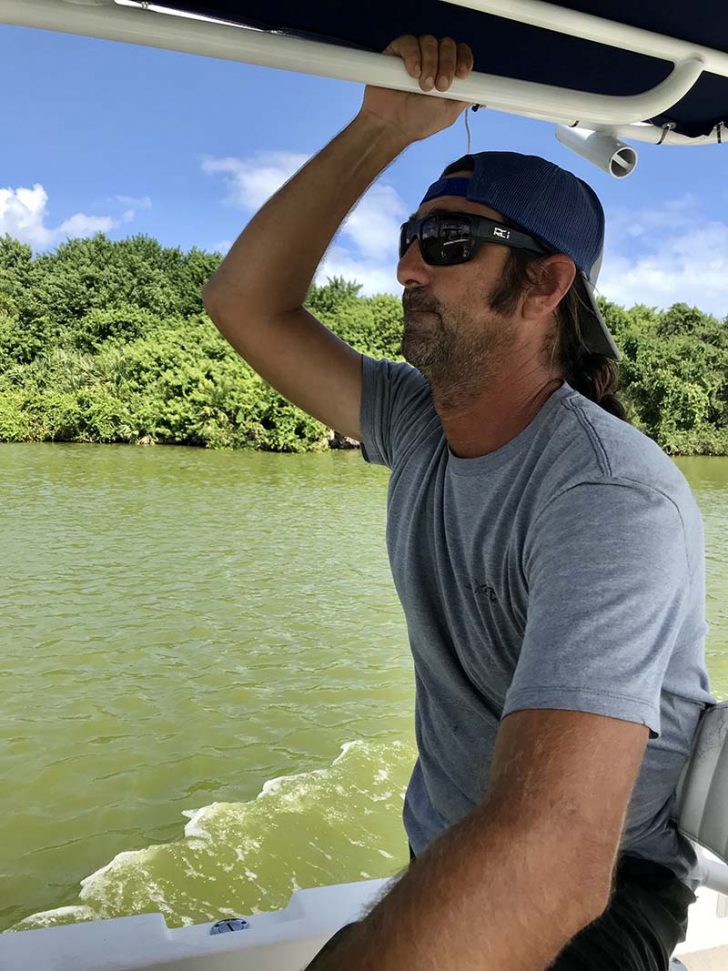
IRK will be returning to this region on a regular basis throughout the fall and early winter to monitor the bloom. Reports on social media are that bloom conditions of varying intensity extend as far south as Melbourne as of Oct 1. We ask that anglers send us reports on, and photos of, bloom conditions and fish kills they come across. Email to: keeper@theindianriverkeeper.org. And fish kills should be reported to the Florida Fish and Wildlife Conservation Commission at 800-636-0511. Algal blooms should be reported to the Florida Department of Environmental Protection (DEP) at (850) 245-2118. the DEP maintains an algal bloom hotline and dashboard to log all locations and water testing results for toxicity at www. Floridadep.gov/algalbloom.
Lake Okeechobee Update
Due to late-summer rainfall, the elevation of Lake Okeechobee reached 16.1 feet on October 9, prompting the U.S. Army Corps to announce the need to discharge Lake water to the C-44 canal and ultimately to the south fork of the St. Lucie River by way of the S80 lock and dam sometime during the week of October 12-15. This action is to stem the steady rise of the Lake rather to take it down appreciably. The Corps has not stated what the duration of the discharge will be, but it is expected that discharge volume will be in the neighborhood of 1,200 to 1,600 cubic feet per second, which translates to nearly 1 billion gallons per day on the upper end.
IRK is especially concerned because the St. Lucie estuary has seen heavy local stormwater runoff for much of the summer already, and with the addition of so-called “local basin” runoff from 4 major canals that drain interior lands well west of the coast, that the additional dirty, fresh water will wipe out any established live oysters in the estuary. For example, salinity at Stuart’s Roosevelt Bridge has been under 5 parts (with 35 being open ocean salinity) many days in the last 30. Plus, the Lake water tends to bring heavy sediment into the estuary as well, and that settles, adds to the muck layer, and can cut our sunlight that seagrasses need to recover in the vicinity of Sailfish Flats just inside the St. Lucie Inlet. There is also an active cyanobacteria (blue-green alga) bloom on Lake Okeechobee and fears are that it can again be transported to the St. Lucie River, where it created a state of emergency health order in 2018. Hopes are that cooler weather and shorter sunlight hours will help decrease that possibility.
IRK reminds anglers and residents that they can periodically check the Indian Riverkeeper Facebook page for links to public Zoom meetings by both the South Florida Water Management District, U.S. Army Corps of Engineers and the Blue-green Algae Task Force, all of which invite public participation and comment. Due to ongoing Covid-19 restrictions, public meetings are not planned.
Upcoming Indian Riverkeeper Events
Due to Covid-19 IRK has decided to not hold large public gatherings, which the exception of beach/Lagoon cleanups as was done in St. Lucie County in September. Check our Facebook page for updates on a cleanup to take place in November, location to be determined.
Public fundraising events are temporary on hold, though IRK is conducting Facebook auctions and raffles, and new membership specials. Visit our Facebook page and visit www.theindianriverkeeper.org for more information or to donate to our 501(c)(3) organization.

